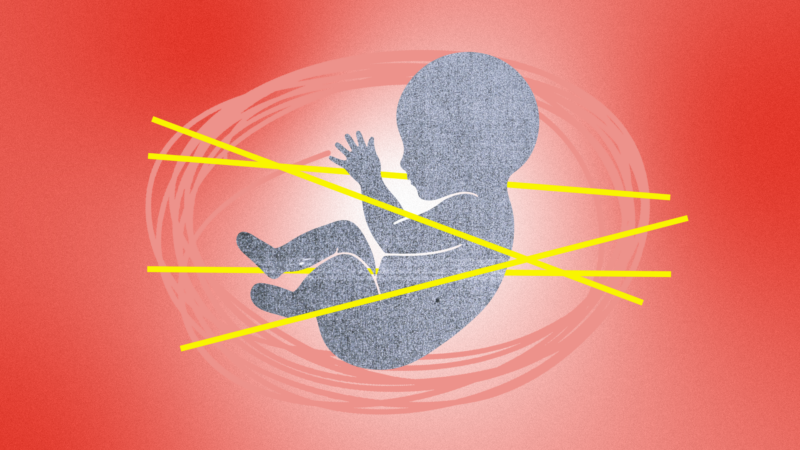Gå offline med appen Player FM !
Why We Can't Have Nice Things: Who Decides What Health Care Is 'Needed'?
Manage episode 439522352 series 3498470

In a functioning market, entrepreneurs feel encouraged to bring new products and services to consumers—and get rewarded when those efforts succeed.
Too often, that's not how it works in health care. Patients end up paying the price.
On this week's episode of Why We Can't Have Nice Things, host Eric Boehm dives into the murky waters of certificate of need laws, which restrict the availability of health care in many states and limit the ability of new providers to enter those markets. Though they vary a bit from state to state, these regulations generally allow state bureaucrats to determine what services are needed—often at the behest of existing providers, who use the process to cut off potential competition.
That's exactly what happened to Katie Chubb and Dr. Jay Singleton. Chubb is a mother and serial entrepreneur who has spent years trying to open a new birth center in Augusta, Georgia. Singleton is an eye doctor in North Carolina who spent more than $1 million to build a cataract surgical center, then found out the state wouldn't let him use it to full capacity. Both have been fighting their state's certificate of need systems in the hopes of making lasting changes.
"To put it simply, you have the government saying that less expensive, quality health care services that patients actually need are not needed," explains Josh Windham, an attorney with the Institute for Justice who recently argued on behalf of Singleton at the North Carolina Supreme Court. "Who is the government to say that to people? Shouldn't patients and doctors make those choices?"
Certificate of need laws are particularly pernicious because the costs are not always evident. We don't see the clinics that aren't built or the services that aren't offered. But the special interests that benefit have a strong interest in blocking reforms.
"The folks that have most at stake here are the would-be competitors, and they're very well organized," says Matthew Mitchell, a senior fellow at the Mercatus Center who has been studying the effects of these regulations for years. "Those who stand to lose, the patients, typically don't even know these rules exist."
Further reading for this week's episode:
"A Baby Dies in Virginia," By Eric Boehm, Reason
"Justices Wrestle With New Bern Eye Surgeon's CON Challenge," The Carolina Journal
"Companies Shouldn't Have the Right To Veto Their Competiton," by Jack Brown, Reason
"Certificate of Need Laws in Health Care: A Comprehensive Review," by Matthew Mitchell
Written by Eric Boehm; produced and edited by Hunt Beaty; fact-checking by Anthony Wallace.
- Producer: Hunt Beaty
The post Why We Can't Have Nice Things: Who Decides What Health Care Is 'Needed'? appeared first on Reason.com.
11 episoder
Manage episode 439522352 series 3498470

In a functioning market, entrepreneurs feel encouraged to bring new products and services to consumers—and get rewarded when those efforts succeed.
Too often, that's not how it works in health care. Patients end up paying the price.
On this week's episode of Why We Can't Have Nice Things, host Eric Boehm dives into the murky waters of certificate of need laws, which restrict the availability of health care in many states and limit the ability of new providers to enter those markets. Though they vary a bit from state to state, these regulations generally allow state bureaucrats to determine what services are needed—often at the behest of existing providers, who use the process to cut off potential competition.
That's exactly what happened to Katie Chubb and Dr. Jay Singleton. Chubb is a mother and serial entrepreneur who has spent years trying to open a new birth center in Augusta, Georgia. Singleton is an eye doctor in North Carolina who spent more than $1 million to build a cataract surgical center, then found out the state wouldn't let him use it to full capacity. Both have been fighting their state's certificate of need systems in the hopes of making lasting changes.
"To put it simply, you have the government saying that less expensive, quality health care services that patients actually need are not needed," explains Josh Windham, an attorney with the Institute for Justice who recently argued on behalf of Singleton at the North Carolina Supreme Court. "Who is the government to say that to people? Shouldn't patients and doctors make those choices?"
Certificate of need laws are particularly pernicious because the costs are not always evident. We don't see the clinics that aren't built or the services that aren't offered. But the special interests that benefit have a strong interest in blocking reforms.
"The folks that have most at stake here are the would-be competitors, and they're very well organized," says Matthew Mitchell, a senior fellow at the Mercatus Center who has been studying the effects of these regulations for years. "Those who stand to lose, the patients, typically don't even know these rules exist."
Further reading for this week's episode:
"A Baby Dies in Virginia," By Eric Boehm, Reason
"Justices Wrestle With New Bern Eye Surgeon's CON Challenge," The Carolina Journal
"Companies Shouldn't Have the Right To Veto Their Competiton," by Jack Brown, Reason
"Certificate of Need Laws in Health Care: A Comprehensive Review," by Matthew Mitchell
Written by Eric Boehm; produced and edited by Hunt Beaty; fact-checking by Anthony Wallace.
- Producer: Hunt Beaty
The post Why We Can't Have Nice Things: Who Decides What Health Care Is 'Needed'? appeared first on Reason.com.
11 episoder
Alle episoder
×Velkommen til Player FM!
Player FM is scanning the web for high-quality podcasts for you to enjoy right now. It's the best podcast app and works on Android, iPhone, and the web. Signup to sync subscriptions across devices.




